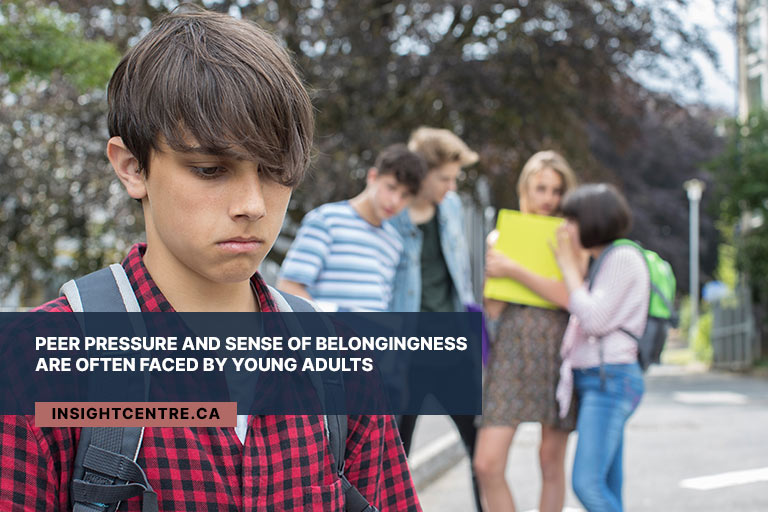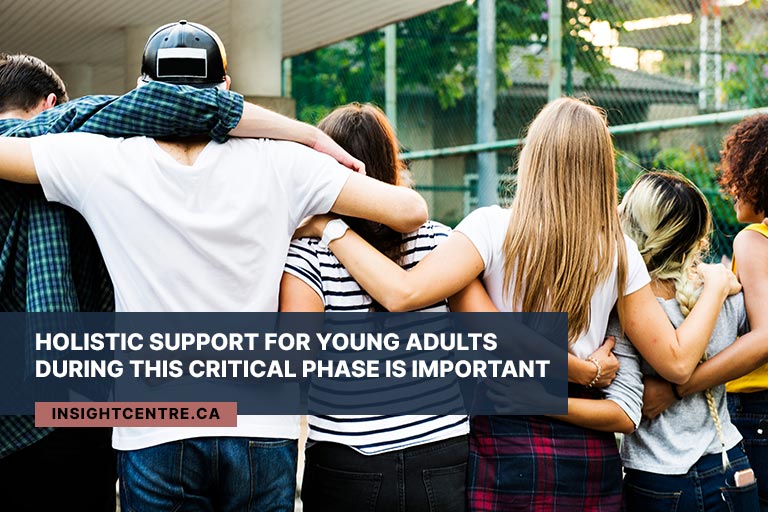
The transition from adolescence to adulthood marks a significant period in a young person’s life, filled with both excitement and apprehension. This stage, often referred to as “emerging adulthood,” involves critical changes across various aspects of life, including education, career, relationships, and personal identity. Young individuals find themselves at a crossroads, making decisions that can shape their future while navigating adolescence challenges of increased independence and responsibility. The challenges they encounter during this time can significantly impact their development and well-being.
Understanding these challenges is crucial for parents, educators, and mentors who play a vital role in guiding young adults through this transformative period. By addressing these concerns, we may ease the anxieties associated with this critical life stage and help young people successfully transition into capable and well-adjusted adults.

Adolescence is a period marked by significant physical, emotional, and psychological changes. Young people often find themselves wrestling with a myriad of issues that can hinder their transition into adulthood. Some of the common challenges they face include:
As adolescents transition into adulthood, the quest for personal identity becomes central. This period is characterized by introspection and experimentation, as young individuals explore various facets of their personalities, values, and beliefs. The challenge lies in reconciling their inner self with external influences and societal norms. The pressure to conform to familial expectations or cultural standards often clashes with their aspirations and desires. This internal conflict can lead to feelings of disorientation and uncertainty.
Adolescents face significant pressure in academic and career planning, often feeling compelled to make life-altering decisions prematurely. The emphasis on academic achievement and the pursuit of successful careers can create a high-stress environment, leading to anxiety and burnout. Many young people feel pressured to choose career paths based on market trends, parental expectations, or societal prestige, rather than their interests and passions. This tension can result in a lack of motivation and a fear of failure.
During adolescence, peer influence is a powerful force, shaping attitudes, behaviours, and self-esteem. The desire to belong and be accepted often leads young individuals to conform to group norms that might conflict with their values or safe practices. This susceptibility to peer pressure can result in engagement in risky activities, such as substance abuse or dangerous behaviours, to gain approval or avoid rejection.
Mental health issues, including anxiety, depression, and eating disorders, are increasingly prevalent among adolescents. The stigma surrounding mental health often prevents them from seeking necessary support. These challenges are compounded by the stressors of this life stage, such as academic pressures, social dynamics, and identity struggles. Additionally, the pervasive influence of social media can exacerbate feelings of inadequacy and isolation.
How to Help Young People Transition into Adulthood

Supporting young people in their journey to adulthood requires a holistic approach that addresses their physical, emotional, and mental well-being. Here are some practical ways for adulthood preparation among teens:
Encouraging self-exploration is essential in aiding adolescents to understand and embrace their unique identities. This process involves creating a supportive environment where they feel safe to explore various aspects of their personalities, interests, and aspirations.
Facilitating opportunities for them to engage in different activities, hobbies, and mentoring programs for young adults enables young people to discover what truly resonates with them. This exploration is not just about identifying future career paths but also about understanding personal values, strengths, and passions, which is crucial in making informed decisions about their future.
Creating an environment where young people feel heard and understood is vital. This involves actively listening to their concerns, validating their feelings, and offering empathy without immediate judgment or solutions. Open communication also means being approachable and available, encouraging them to express their thoughts and emotions freely. This approach helps adolescents develop trust and comfort in seeking advice or sharing their worries, strengthening their ability to handle emotional and social challenges. It also lays a foundation for healthy communication patterns that will benefit them throughout their lives.
Giving academic and career advice to teenagers involves more than just assisting them in selecting their future careers. This support includes offering resources for exploring various career options, assisting in understanding the educational requirements for different fields and encouraging participation in internships or volunteer experiences. To prevent them from feeling under pressure to follow a route that isn’t in line with their goals, it’s critical to strike a balance between providing direction and letting them make their own decisions.
Teaching coping skills and youth resilience-building techniques is crucial for adolescents to effectively deal with the ups and downs of life. This involves helping them develop a mindset that views challenges as opportunities for growth rather than insurmountable obstacles. Educating them about stress management techniques, such as mindfulness, relaxation exercises, and time management, can significantly improve their ability to cope with pressure. Encouraging problem-solving skills, adaptability, and perseverance also plays a key role in building resilience.
Promoting mental health awareness involves breaking down the stigma surrounding mental health issues and creating an environment where discussing emotional challenges is normalized. Educators and caregivers should encourage young people to recognize signs of mental health difficulties and understand that seeking help is a sign of strength, not weakness. Providing resources, such as access to mental health professionals, and educational materials, can offer vital support with adolescent transition. Additionally, educating them about the importance of self-care practices, like regular exercise, healthy eating, and sufficient sleep, can also contribute significantly to their overall mental health.
Building a strong support network is vital for adolescents as they transition into adulthood. This network should include a mix of peers, family members, mentors, and professionals who can offer direction, support, and a feeling of community, all of which are crucial in stressful or uncertain times. It makes young people feel connected and supported when adults help them in developing positive relationships with others. Encouraging teenagers to recognize the importance of these connections and learn how to maintain them is essential to providing them with a strong support system when they face the obstacles of adulthood.
Guiding and empowering emerging adults through this phase is a crucial responsibility that requires understanding, patience, and empathy. Remember, every young person’s journey is unique, and offering a helping hand can make a significant difference in their lives.
If you or a young person you know is struggling with the transition to adulthood and could benefit from individual counselling in Barrie, contact Insight Centre Counselling and Psychotherapy at (647) 633-1928. Our experienced counsellors are here to provide the support and guidance needed to navigate this critical phase.
Copyright 2024 Insight Centre | All Rights Reserved | Sitemap | Powered by: Local SEO Search Inc.